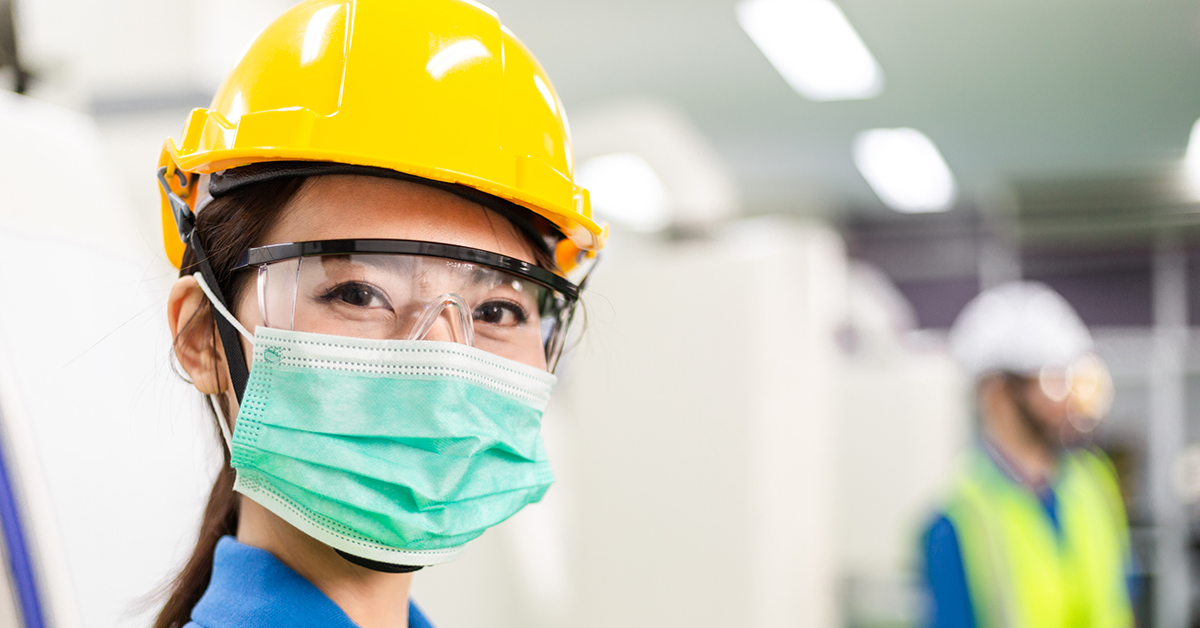In honor of the ILO World Day for Safety and Health at Work, we want to share what we learned about safety and business continuity this past year during the pandemic, including new insights that will shape the future of our company.
When the pandemic began, Antti Salminen tried to stay calm. As the head of Kemira’s Industry & Water business, he knew there were several hundreds of municipalities all over the world and millions of people depending on the company’s chemistry for safe drinking water. The 63 manufacturing sites could not stop running. Without any stretch of the imagination, they were essential.
“Everyone in our company recognized that we have a societal responsibility,” he said. As a result, it was relatively easy to motivate people. No one questioned whether they would continue working.”
“There was a sense of pride. While the rest of the world stopped, we kept going,” concurred Xavier Juanmarti, who works in Kemira’s Pulp & Paper business as a Manager of environmental, health, safety and quality from Spain.
Acting with agility
Kemira employees scrambled to secure logistics and supply chains. Meanwhile, senior leaders had to act fast to put new worker safety protocols in place. “I think what made us successful was putting our people first, taking a ‘no compromise’ attitude toward safety, and fast decision making. Even when data wasn’t complete, we made decisions fast and we swiftly implemented safety protocols. Then, if we had to, we’d take quick corrective action,” Salminen explained.
“We were also much more conservative than other organizations, even national governments for example. We asked people to work remotely before quarantine rules were in effect in many places. We stayed remote longer even when the decision wasn’t popular with employees, for example, when case counts were lower last summer. But it was worth it. As a result, we have had very few employee cases transmitted at workplace,” he said.
Salminen explained that remote workers were encouraged to borrow office furniture and computer hardware like monitors to ensure ergonomically-sound work environments at home.
“Even when data wasn’t complete, we made decisions fast and we swiftly implemented safety protocols.”
For other locations, like manufacturing sites, Kemira implemented symptom monitoring, contact tracing and immediate quarantine for anyone suspected to have come in contact with sick individuals. The protocols extended to contractors as well.
However, Salminen observed, “One thing that was a bit different than usual was more discretion for local teams. There were some protocols that were nonnegotiable, but we asked site managers to decide for themselves whether they would shut down sites for annual maintenance, for example. Usually, shutdowns require a few hundred contractors on site. Some sites chose to hold off, but a few went forward. Thanks to strict protocols, we did identify a couple of COVID-positive cases in those situations and we immediately quarantined workers which prevented further spread.”
Tuija Pohjolainen-Hiltunen, who leads the Pulp & Paper commercial business in the Americas, acknowledged, “With a strong safety culture already in place, it was easier to make these adjustments to everyday work.” Still, she credited the organization’s adaptability and the speed at which the company was able to change.
But safety isn’t all physical. Leadership soon realized that employees’ mental wellbeing was suffering, and others were dealing with personal financial crises.
A holistic view of health
Pentti Putkinen, who heads manufacturing for Pulp & Paper in Europe, the Middle East and Africa (EMEA) said that one of the main learnings from the pandemic was more focus on overall well-being.
Salminen agreed, “We realized that mental health was a big issue, especially for remote employees. We expanded our employee assistance offering and we gave our people managers training on how to lead remotely.”
But, he said, there was also another potential issue the company became attuned to ─ financial concerns. “We continued to employ our staff and pay the salaries throughout the crises. But you never know what someone is dealing with at home, for example, if their partner is out of work,” he said.
Kemira offered employee loans to employees dealing with financial hardship. The company granted close to 100 loans through the program.
Delivering for customers when it counts
Perhaps one of the biggest surprises for Kemira was the response from customers. Despite the initial scramble to adapt to the evolving crisis, there was no significant impact to customers according to both Salminen on the water side of the business and Pohjolainen-Hiltunen on the pulp and paper side.
In fact, a September 2020 survey revealed that customer loyalty increased during the pandemic. Customers were generally appreciative of Kemira’s consistency and ability to deliver on time. “They also said that that our remote support exceeded their expectations, Pohjolainen-Hiltunen added.
Effective communication and trust
The Pulp & Paper manufacturing team said one of the key takeaways for the company was the importance of communication. Putkinen and Juanmarti, both in the EMEA region, remembered early exchanges with Kemira colleagues in Asia-Pacific that helped prepare them to quickly respond the pandemic in Europe. They also both agreed that having a global crisis team for high-level decisions and regional crisis teams for local management was an effective an agile approach.
Additionally, Putkinen emphasized the importance of trust. He said, “What we learned in the pandemic is that we don’t have the answer to every question and sometimes you have to make decisions without all the facts ─ especially for the plant managers. But when you look at the outcome, almost everything they’ve decided has been right.
“The key word is trust. I cannot be involved in all decisions. I need to trust in my team and my plant managers and empower them. We have learned a lot. After this crisis, we are a better organization and we’ll be working in a better way.”
>> Find out more about Kemira’s safety culture and ambitious targets

